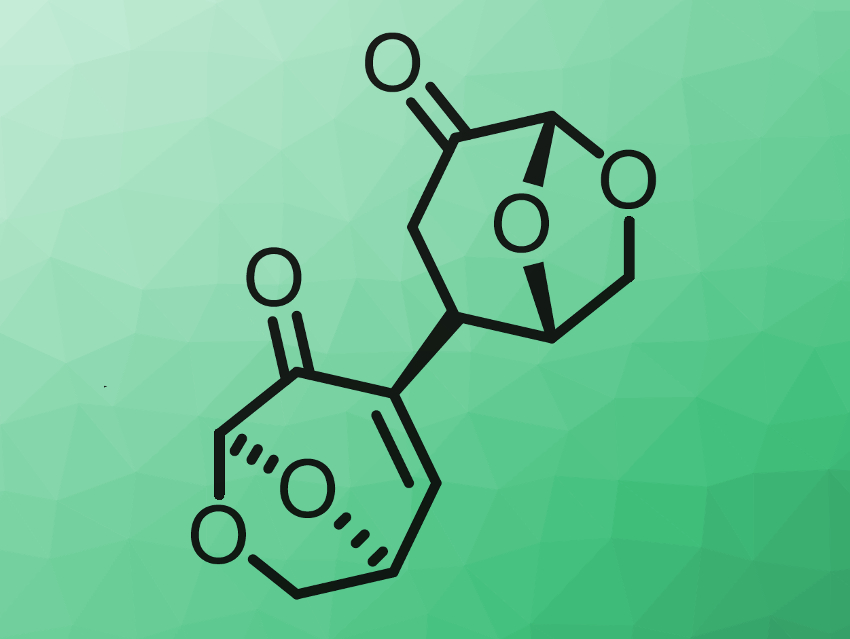Polymers made from bio-based monomers could provide a more environmentally friendly and sustainable alternative to those made from fossil resources. Bio-based monomers can be obtained from sources such as starch, cellulose, or bio-ethanol. The resulting polymers could help to reduce the consumption of fossil resources and avoid large amounts of non-biodegradable waste.
Louis Mouterde, AgroParisTech, Pomacle, France, Stephen A. Miller, University of Florida, Gainesville, USA, Florent Allais, AgroParisTech and University of Florida, Gainesville, and colleagues have developed a simple, green synthesis of a completely bio-based monomer and used it to prepare new sustainable polyesters. Levoglucosenone (LGO), a building-block derived from cellulose, was dimerized in methanol in the presence of a catalytic amount of K2CO3 in high yield (pictured below). The resulting LGO–Cyrene™ dimer was converted to a bislactone monomer (2H-HBO-HBO, HBO = (S)-γ-hydroxymethyl-α,β-butenolide) using a Baeyer-Villiger oxidation with aqueous H2O2.

This new bislactone monomer was then subjected to polycondensation to produce bio-based polyesters with promising thermo-mechanical properties, comparable to those of some commercially available plastics. The material’s properties can be further tuned by post-polymerization modifications. According to the researchers, this could widen the scope of applications of these bio-based cellulose-derived plastics.
- Sustainable synthesis and polycondensation of Levoglucosenone-Cyrene™-based bicyclic diol monomer: an access to renewable polyesters,
Florian Diot-Néant, Louis Mouterde, Sami Fadlallah, Stephen A. Miller, Florent Allais,
ChemSusChem 2020.
https://doi.org/10.1002/cssc.202000680




